I sat , transfixed by her words: ‘Six years ago I was dead! I was sick with AIDS, abandoned by my family and afraid what would become of my grandchildren. And look at me now. I am alive; I am healthy; I can do anything! My grandchildren are going to school; they are no longer hungry; they are doing well. I work in the community garden and I teach sewing. I can do anything! I am not afraid of anything! And it is all thanks to the NLK organization and the Stephen Lewis Foundation.’
The woman was speaking in Amharic , and she had made eye contact with me. Subdued and a little shy at first in front of this audience of 12 Canadian grandmothers and about 50 of her community members, dressed in traditional Ethiopian dress with her arms wrapped up in a white shawl, she became more animated as she felt her own power. I was glad we had an excellent translator, but the fierceness of her eyes told the story equally well. Negem Lela Ken New HIV Positive Women Support Organization (NLK) is one of two projects receiving funds from the Grandmothers Campaign of the Stephen Lewis Foundation (SLF) that I visited personally in March 2014. The trip took 22 grandmothers from across Canada on a whirlwind educational tour of Ethiopia, Rwanda and South Africa. Being there, hearing the stories from the women who are supported by the projects that receive funding from the SLF, and who in turn volunteer to take on the task to care for and support others, was a revelation.
Ethiopia is a very poor country and its capital, Addis Ababa is a colourful city with very few paved streets, few buildings over 5-6 stories, almost no privately owned cars, no public transportation, and only very old and beat-up blue and white taxis or minibuses, if you can afford them. The grandmothers, and most everybody else, walk. We were welcomed with warmth and hugs – three kisses on alternating sides of the neck is the custom in Ethiopia for a friend – and they showed us their accomplishments with such pride.
At the ‘bazar’, with a banner in our honour, produce from their community garden was on display … beautiful vegetables and yams, spices, and green and red peppers. There were also products from their income-generating projects. While we admired lovely cotton garments with embroidery, some of the grandmothers continued to work, spinning the cotton balls into yarn by hand. Grandmother’s work is never done here! The seed from the cotton is used to oil the pan that bakes their traditional bread-like, pancake-shaped staple ‘injeera’, a very acquired taste!
We needed to shop of course, and were treated to our first coffee ceremony and lunch, rapidly learning to use the injeera as our utensil and only with our right hand. Later, we visited the training centre where teaching of embroidery skills (with old trundle Singers) and weaving takes place. There is only room for two looms in the small corrugated iron shack that the weavers share with the embroidery shop.
The pictures show how emaciated these young HIV+ women are. They have recently come into the program and yet they are proud and grateful to have found a new home, accepted by a community that includes them as family and takes care of them. The stigma of HIV is still very strong in Ethiopia; fear and ignorance about its transmission is still widespread despite efforts at education. Access to modern anti retroviral drugs is still a problem for many and of course they are of little help if you don’t have food, or someone to remind you to take them.
The unique way in which NLK supports grandmothers looking after grandchildren orphaned by AIDS, as well as young low income vulnerable HIV+ women, became even clearer as we were shown how the money that had come in from our shopping that morning was being assigned in their ‘table banking’ cooperative way. Two trusted women from the program who had reading, writing and counting skills, were receiving, counting and dividing up the money into different coloured envelopes. One was for rent of the various premises where the projects use space (we were told that if the income from sales one month runs short, the managers dip into their pay to make good on the rent), one for supplies, one for small salaries of all the women working in the gardens or making crafts, and then one more for ‘the Bank’.
‘The Bank’ keeps a reserve for emergencies, but most importantly, makes small loans to the women graduating from the skills training programs, perhaps to buy a sewing machine or, if they have graduated from the hairdressing school, the combs, brushes, shampoos and other supplies to set up their own small business. Every woman who receives a loan gets a small notebook and pays back a small amount every week, with very little interest. For late payments, there is a small ‘penalty’ unless there was a significant reason, like illness. The penalty fee money goes into yet another special envelope, the ‘social’ fund. Out of this, members of the community who are unable to work because of illness or other adversity, are given a sustenance payment until they are well enough again to be able to contribute to the well being of all.
My experiences in seeing and talking with the women in this community made the whole concept of African grandmothers being the experts in ‘turning the tide of HIV/AIDS’ in Africa real for me. The next day, I received another even more revealing lesson. We were treated to a play by members of the community, the purpose being to show us (and also illiterate others in outlying villages) what the ‘community health workers’ trained by NLK do.
Picture a woman lying on a cot, moaning in pain and suffering, and a 16 year old daughter (in modern dress), being a teenager, looking bored and angry, and not responding to the woman’s pleas for help, food or anything. In walk two community health workers, identified by their white coats (they always work in pairs, sometimes even three together). They ask mother and daughter about the problems, tidy up the shack, ascertain when the woman has last had anything to eat, prepare the food they have brought, and start to care for the woman, being careful to show the audience that they are using gloves for contact with body fluids. They wash the woman’s hair, feed her, cut her fingernails and toenails, and engage the daughter in a counseling session.
They educate the daughter about safe nursing care practices and how AIDS is transmitted, using themselves as examples – ‘we are HIV+ on medication; we are healthy. Your mother is not going to die’! They also remind the daughter about her duty to her mother, and reconciliation between mother and daughter is accomplished. Most importantly, they promise to be back at least three times a week to make sure that both have enough food, that the mother gets medical care and medication, and that the daughter gets support as well. Thus, both can come into the program and benefit.
When we Canadians asked how these women managed to do all this: look after their grandchildren, work in the cooperative and then volunteer time to look after the sick outside, the answer was simply this: We only volunteer two or three afternoons a week. And then other grandmothers pick up our grandchildren from school. But we were once there: alone, abandoned and helpless. We do not want anyone else to suffer that way. That is why we have to do this; that is where our energy comes from.
Suddenly it came to me. This is the healing power of community, just as important as the food, medication and other support provided. This provides the transition from being abandoned and considered worthless, to a person who matters, is valued and loved, and who then needs to extend that love and care to others. It was a deeply moving and humbling experience during which I learned a lot. The grandmothers of Africa do so much with so little, in circumstances that we would find so very difficult to deal with. They deserve our ongoing support!
In my next post, I would like to tell you about our other experiences in Ethiopia, participating in the first International Womens’ Day march with KYRDOCH, a project that focuses on youth and orphans, as well as their caregivers.
For more information, go to Stephen Lewis Foundation , Grandmother Campaign and Negem Lela Ken (NLK).
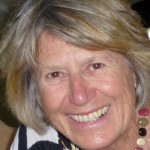 Paxie Vreede
Paxie Vreede
Email Paxie Vreede
See all articles by Paxie Vreede


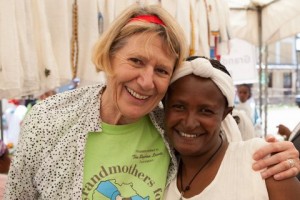
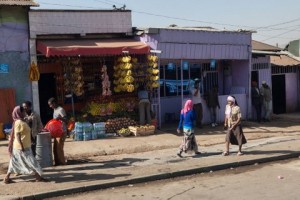
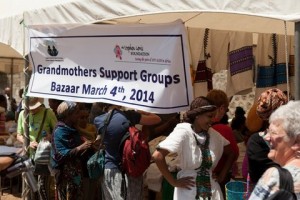
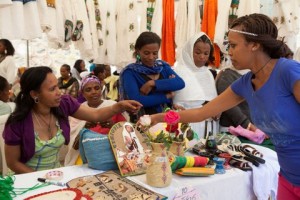
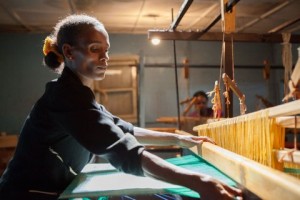
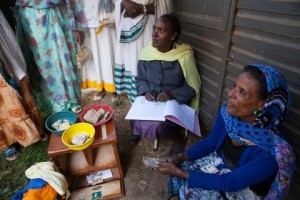
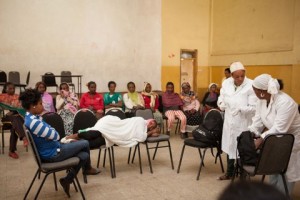
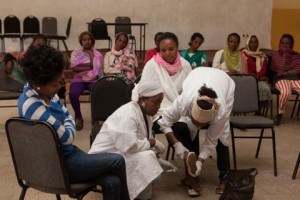
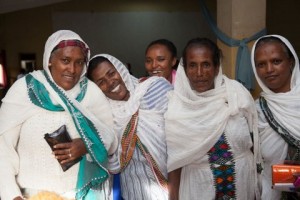


Dear Paxie;
Your article drew me in and added so much to my understanding of why I support the SLF’s Grandmothers to Grandmothers Campaign. Your on the ground descriptions and wonderful photos renewed my commitment African Grandmothers. I look forward to more of your experiences.
Dear Paxie: Thank you so much for sharing. The struggles of the women of Africa are unbelieveable for us living in this priviledged country. It is wonderful to hear of this new program and to know that merely riding bikes for 275 kms can help support the Grandmothers of Africa!
Joanne
Such an inspirational article Paxie, how strong these women are such a community spirit amongst them all.
Dear Paxie,
Congratulations on being chosen for this worthwhile mission. It must have been a wonderful experience. Thank you for sharing your stories. I look forward to reading your next article,
Heather
Hi Paxie, I look forward to hearing more of your stories of your visit to Africa with the SLF. I am sure this experience will last with you forever…It is rewarding to know our fundraising goes to so many wonderful dedicated and hardworking grandmothers.
A wonderful article. Congratulations on spreading the word in such a unique forum!
You are an amazing grandmother. Thank you for sharing your amazing journey!
Dear Paxie,
This article is truly moving. Your enthusiasm and compassion for the cause shines! Thank you. I look forward to read all your articles.
Sincerely,
Ulla